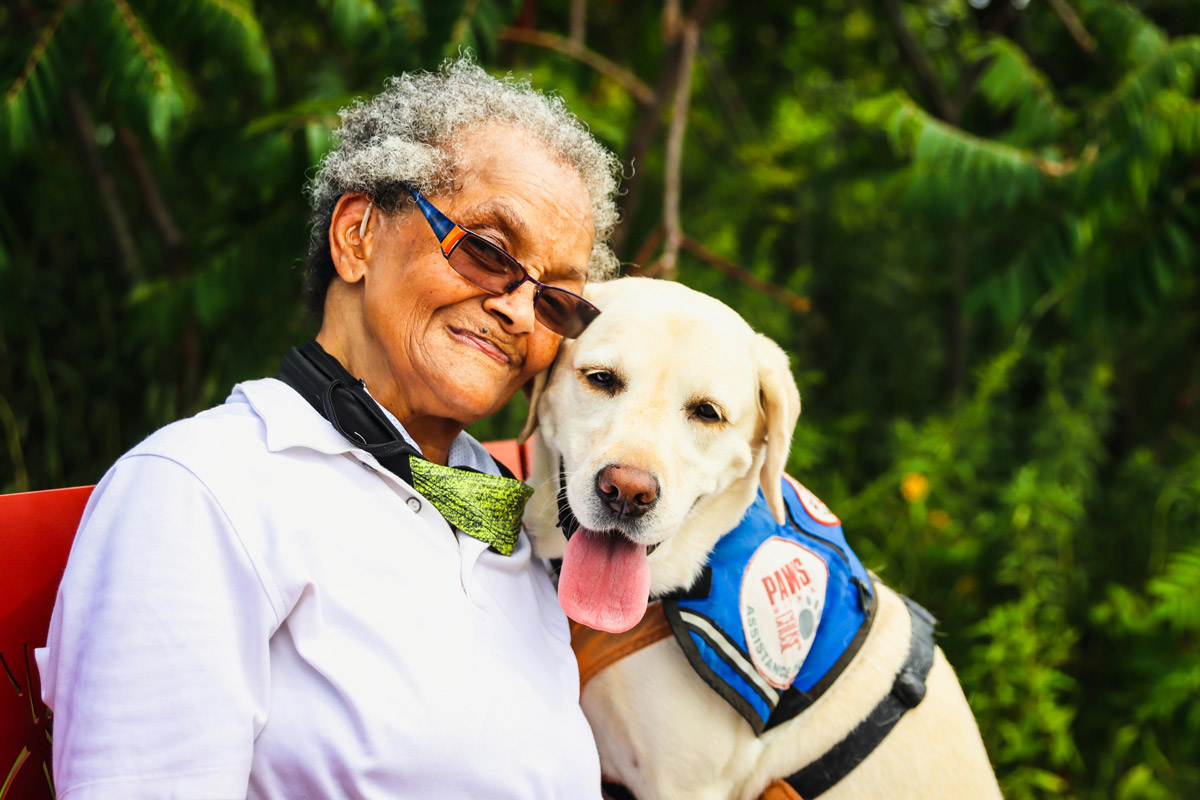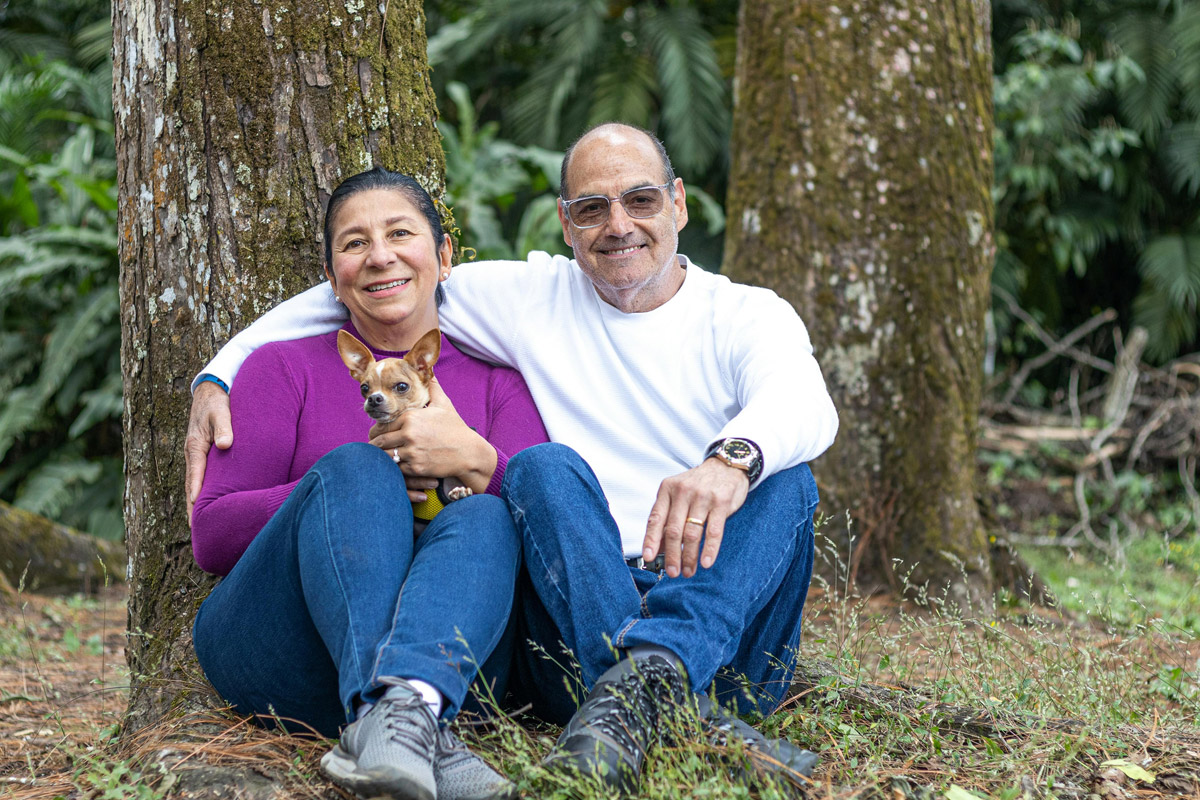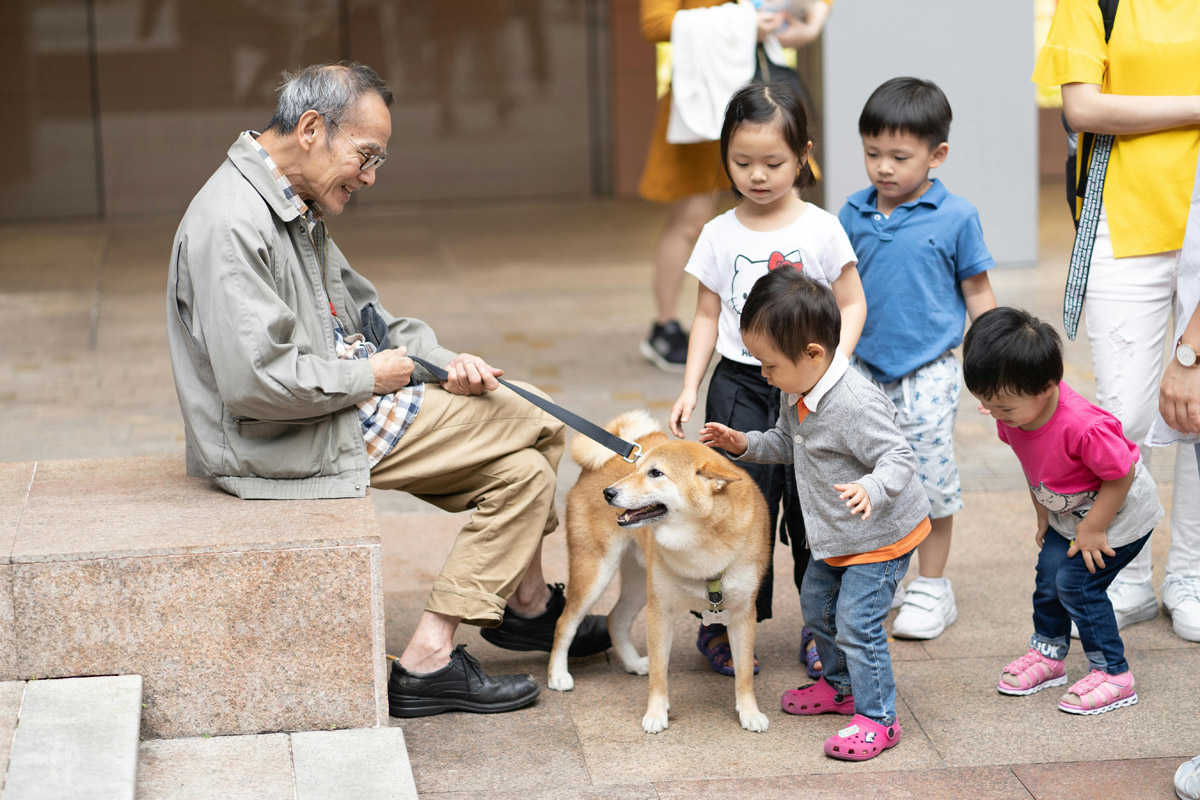
One of the hardest adjustments after My Girl crossed the rainbow bridge last year, was how quiet the house (well, apartment) became. Not because My Girl was yappy! But because I realized just how much I talked to her, about everything! Every action was narrated, we shared deeply philosophical conversations (of which I conducted both parts), and the constant interaction was a balm to the soul. Clearly, I missed this aspect of pet companionship so much that I barely lasted two months before welcoming home My Guy. So I am not at all surprised to hear that new study results show that owning a dog or cat can help reduce cognitive decline for older people. See, I’m not the crazy dog lady talking in voices! I’m the crazy lady who’s building habits that will slow my brain’s aging process thanks to my entirely healthy relationship with dogs! It’s called SCIENCE. And speaking of, here’s what the scientists had to say:
The type of pet you have can impact how your brain ages — and dogs and cats have a “protective factor” that can “slow down cognitive decline.”
Dog and cat owners saw improved brain health — more than those who had birds or fish, or no pets — according to a new study, published in Scientific Reports, that used 18 years of data on cognitive decline in adults over 50.
“Both cat and dog owners experienced slower decline in multiple cognitive domains — dog owners in immediate and delayed recall, cat owners in verbal fluency and delayed recall,” the study found. “Fish and bird ownership had no significant association with cognitive decline.”
“Several explanations may help explain the absence of this association in fish and bird owners, despite the reports of their ownership’ positive influence on wellbeing in ways that are usually associated with cognitive benefits,” study author Adriana Rostekova, from the University of Geneva’s lifespan developmental psychology research group said, per The Guardian.
The study theorized that the shorter lifespan of a bird or fish impacts “the level of emotional connection,” due to “frequently having to deal with the pet’s death.” The study also pointed out that birds can be incredibly loud: “Bird ownership may negatively affect the owner’s sleep quality due to the increased noise levels, which has been shown to be associated with cognitive decline.”
But the very nature of owning a cat or a dog may help the brain stay healthy, Rostekova explained: “There is also a possibility of increased social stimulation facilitated by cats and dogs, which may be linked to the slower cognitive decline experienced by their owners: an increased frequency of social interactions when accompanied by a dog — or for cats, a substitute for a social network.”
The study says that, since “dog and cat ownership might act as a protective factor aiding to slow down cognitive decline, thus contributing to healthy cognitive [aging],” these findings could help inform policies on healthy aging, specifically to make veterinary care or pet insurance “more accessible to older adults” — as well as advocate for “animal-friendly senior housing options, such as assisted living facilities or nursing homes.”
“…an increased frequency of social interactions when accompanied by a dog — or for cats, a substitute for a social network.” Well, if that doesn’t surmise the difference between cats and dogs to a tee! Dogs are like, “more people, yay!” while cats go “I am your entire world now, you’re welcome.” I have to say, though, two years ago when my father was in rehab after his stroke, the facility allowed pets to visit. The way everyone, patients and nurses, lit up when My Girl trotted down the hall was truly something. And for her part, My Girl received her adulation graciously. So hell yes, floofs should be allowed in senior housing. Not holding my breath under this regime, though.
Also, I don’t need to be a research scientist to cosign those comments about the noise factor with birds. Last year I found myself in the apartment of a bird owner; while the guy was vibrantly plumed, the squawking was relentless! And frequently coupled with, um, expressing himself out his other end.
Photos credit: Provisionshots LLC, Jean Paul Montanaro, Nataliya Vaitkevich and King Hang Leung on Pexels














Cat lady here. I have to cats that own me and I serve at their beck and call lol. I can see where they sure do keep the brain and mind stimulated.
I can see where it can help, for dozens of reasons, including building a routine, having to tune into another living being you see regularly, learning how they communicate and connect, building connections with other people especially if its a pet you have to got out to walk where you’ll come across other people, having a loving being in your home who is tuned into you, encouraging functional fitness … little things like bending and stretching with food bowls, quick moments when you’re tossing toys, environmental awareness.
I may be working less, have a shorter commute next year, and I’m thinking seriously of getting a dog. Or maybe becoming a puppy raiser for a service dog organization so it’s an ~18 month commitment . I’m dog sitting for relatives’ dog this week, splitting off duties with a sister who lives nearby. It’s a lot of fun, but it’s also a reminder of the work and routine involved to care for s dog well. He’s SO sweet and when he looks at me with those big brown eyes or cuddles up, it warms my heart.
😍
That makes complete sense to me. I live in an area with a lot of seniors, many with dogs (fewer cats) and several have said having a dog keeps them active and engaged. A couple are in early stages of Alzheimer’s and while their dogs are not service animals, their spouses are comfortable letting them walk the dogs independently because they know the dog will help them get home or keep them calm if they get disoriented on the route.
When we moved back east we spent a lot of time with an older relative and, active as she was, having our dog around seems to give her a sense of purpose to have a living being to help care for and having another presence in the house when we weren’t there.
Heck, I’m not a senior but if I didn’t have a dog I’d probably be a full on hermit!
We need our furry friends. I think other studies have shown that pets help lower blood pressure; this might be what mediates between pet ownership and slower cognitive decline, because high blood pressure is a major culprit in cognitive decline.
I struggled in the early 00’s when we moved and i went from commuting to a corporate job every day to 100 % remote. My therapist told me to get a pet. so we got our first rescue, who saved me as much as i saved her.
Fast forward 15 years and our 2 rescues passed within a month of each other. My heart was unconsolable. the silence in the house was deafening, and despite agreeing to wait until after our vacation in November, we adopted a new girl.
It’s been scientifically proven that having a pet can help with co-regulating your central nervous system. They’re SO good for our mental and physical health, life is better with them.
Pets are the BEST! Crazy dog lady here. I take my pooch to a loved one’s memory care unit every couple of weeks. The way some of the residents come alive when they see her is heartwarming, in a heartbreaking place. Dogs and cats can do magical things with the old, young, and every thing in between.
Totally believe it! Look at that photo here of the little kids getting sooooo excited about the dog and the dog’s person being so happy that the kids are excited! Dogs are the best! (cats are cool, wouldn’t want to insult them!)
I often walk my dog near a seniors’ community. Most of the elders love to say hi to my pup, even tho she’s a bit rambunctious so I keep her on a short leash. I don’t want her to jump and knock them off balance (thankfully that hasn’t happened). I think a lot of these elders grew up on farms with mutts for pets, and my rescue dog reminds them of good times. It’s sweet to see their faces light up when they see her.